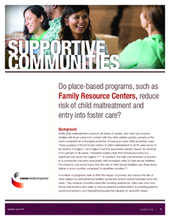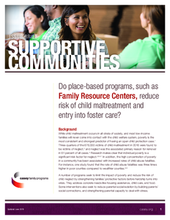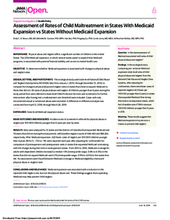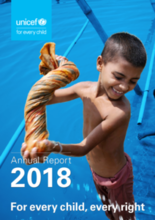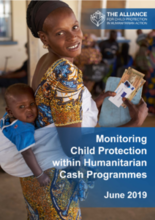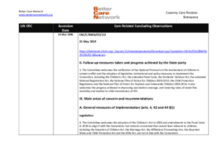Displaying 311 - 320 of 1090
This issue brief addresses the following questions: What are family resource centers? What are the defining characteristics of a family resource center? What do we know about the effectiveness of family resource centers in reducing child welfare involvement? What is the return on investment? What is missing from the research literature?
This issue brief describes family resource centers, their defining characteristics, and what is known about their effectiveness in reducing child welfare involvement. The brief also discusses return on investment and what is missing from the research literature.
The aim of this article is to examine the relationship between the timing and chronicity of neglect during childhood and substance use in early adulthood.
The purpose of this study was to determine whether Medicaid expansion is associated with changes in physical abuse and neglect rates of children in the US.
In words, images, facts and figures, this report details the results that UNICEF achieved in 2018, together with its generous partners and supporters, a dedicated global workforce and children and young people themselves.
This paper from the Alliance for Child Protection in Humanitarian Action summarises findings from an initial scoping study, which seeks to review how child protection outcomes are captured when monitoring multi-purpose humanitarian cash programmes. The paper proposes a theory of change of the possible links between cash and child protection to inform the development of a monitoring strategy, including hypotheses that humanitarian cash might contribute to prevention of family separation, reduction of family violence, and supporting foster and temporary caregivers to care for separated and unaccompanied children.
This country care review includes the care-related Concluding Observations adopted by the Committee on the Rights of the Child.
Using theoretically-informed mediating path models and data from the second National Survey of Child and Adolescent Well-Being (NSCAW II), this study tests the role of harsh physical punishment as a mediator between family income and child protective services (CPS) involvement in the US.
The aim of this study was to ask youth themselves how they experience the impact of traumas prior to living in a foster family.
This study prospectively examined risk factors of first time delinquency for maltreated youth between ages 9 and 14.

